
Carbon Capture Science & Technology
metrics 2024
Leading the Charge: Advancing Sustainable Solutions through Carbon Capture
Introduction
Carbon Capture Science & Technology, published by Elsevier, is an esteemed, peer-reviewed, open access journal dedicated to advancing research in the growing fields of chemical engineering, energy, and environmental science. With an ISSN of 2772-6568, this influential journal has established itself since its inception in 2021 and continues to make notable contributions, reflected in its impressive Q1 rankings across multiple categories, including a #14 rank in Environmental Science and a #13 rank in Chemical Engineering as of 2023. The journal aims to provide a platform for the dissemination of innovative carbon capture technologies and methodologies that address vital climate challenges, ensuring broad accessibility for researchers, professionals, and students alike. By embracing open access, Carbon Capture Science & Technology fosters a collaborative approach to knowledge sharing, making it an indispensable resource for those committed to sustainability and environmental preservation.
Metrics 2024
 2.04
2.04 10.40
10.40 -
- 19
19Metrics History
Rank 2024
Scopus
IF (Web Of Science)
JCI (Web Of Science)
Quartile History
Similar Journals
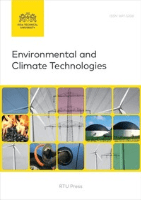
Environmental and Climate Technologies
Innovating Research for Climate Resilience.Environmental and Climate Technologies is a premier open-access journal dedicated to advancing knowledge in the fields of environmental science and renewable energy. Published by SCIENDO since 2009, this journal plays a crucial role in disseminating innovative research and interdisciplinary studies that address the pressing challenges posed by climate change and sustainable development. With its current positioning in the Q2 quartile for Environmental Science (miscellaneous) and Q3 for Renewable Energy, Sustainability and the Environment, it is recognized for its significant contributions to the academic community, ranking #107 out of 233 in General Environmental Science and #161 out of 270 in Renewable Energy. Hailing from Germany and operating under an open-access policy, Environmental and Climate Technologies ensures that research remains accessible to a global audience, fostering collaboration and discussion among researchers, professionals, and students alike. The journal invites rigorous scientific inquiries and practical solutions that can mitigate the impact of climate-related issues, making it a vital resource for those committed to environmental stewardship and sustainability.
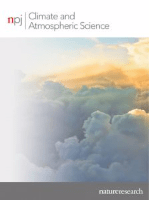
npj Climate and Atmospheric Science
Pioneering interdisciplinary approaches to global change.npj Climate and Atmospheric Science, published by NATURE PORTFOLIO, is a premier Open Access journal dedicated to advancing the understanding of climatic and atmospheric phenomena. Since its inception in 2018, this journal has positioned itself as a leader in its field, achieving Q1 ranking in 2023 across key categories such as Atmospheric Science, Environmental Chemistry, and Global and Planetary Change. With a Scopus rank of #23 out of 148 in Earth and Planetary Sciences and a commendable percentile ranking, npj Climate and Atmospheric Science serves as an essential platform for disseminating high-quality research, fostering interdisciplinary collaboration, and addressing critical global challenges. Its open access policy ensures that vital research findings are available to a broad audience, facilitating scholarly engagement and innovation. Researchers, professionals, and students in the fields of environmental science and climate studies will find this journal a valuable resource for cutting-edge studies and transformative insights.
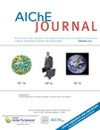
AICHE JOURNAL
Empowering Researchers with Cutting-Edge InsightsAICHE JOURNAL, published by Wiley, is a premier academic journal that has been at the forefront of chemical engineering research since its inception in 1955. With an ISSN of 0001-1541 and an E-ISSN of 1547-5905, this esteemed journal has carved a niche within several vital fields, boasting a 2023 categorization of Q1 in Chemical Engineering (Miscellaneous), Q2 in Biotechnology, and Q2 in Environmental Engineering. The journal’s significant impact is demonstrated through its Scopus rankings, particularly its rank of #62 in General Chemical Engineering and #54 in Environmental Engineering, showcasing its influence and reach in these disciplines. Although not available as Open Access, AICHE JOURNAL plays a critical role in disseminating cutting-edge research essential for advancing knowledge and practice among professionals, researchers, and students in chemical and environmental engineering realms. With convergence expected until 2024, it remains a vital resource for the latest developments, methodologies, and innovations that shape the future of technology and sustainability in the scientific community.
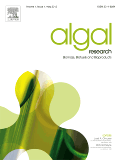
Algal Research-Biomass Biofuels and Bioproducts
Exploring the potential of algae in renewable energy.Algal Research - Biomass Biofuels and Bioproducts is a prestigious academic journal published by Elsevier, dedicated to advancing the field of algal biotechnology and its applications in biomass, biofuels, and bioproducts. With an ISSN of 2211-9264 and a notable impact factor, this journal is recognized as a leading source of innovative research, boasting a current Scopus rank of #31 out of 406 in the domain of Agricultural and Biological Sciences, specifically Agronomy and Crop Science, positioning it in the top 8% of its field (92nd percentile). This open-access publication, established in 2012 and covering literature up to 2024, prioritizes disseminating high-quality research that fosters sustainable solutions for energy and bioproducts derived from algal resources. As a Q1 ranked journal in the 2023 Agronomy and Crop Science category, it serves as a vital resource for researchers, professionals, and students seeking to understand and leverage the potential of algae within the biodiverse framework of bioeconomy and sustainable practices.

Petroleum Exploration and Development
Pioneering Discoveries in Geology and GeochemistryPetroleum Exploration and Development is a premier open-access journal published by KEAI PUBLISHING LTD, dedicated to advancing the fields of petroleum exploration and extraction as well as associated technologies. Since its inception in 2008, the journal has established itself as a key resource for researchers and professionals across various disciplines, evidenced by its impressive Q1 rankings in multiple categories including Economic Geology and Energy Engineering. With an impact factor that reflects its high citation rates and academic significance, this journal offers a unique platform for disseminating cutting-edge research related to geological studies, geochemistry, and energy sustainability. By making all its content freely accessible, Petroleum Exploration and Development ensures that its findings are available to a global audience, fostering collaboration and innovation within the community. Researchers, industry professionals, and students will find valuable insights and advancements in the realm of petroleum science, making it an essential part of their academic and professional libraries.
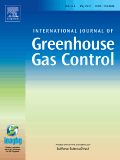
International Journal of Greenhouse Gas Control
Pioneering research in greenhouse gas management.The International Journal of Greenhouse Gas Control, published by Elsevier Science Ltd, serves as a premier platform for disseminating cutting-edge research on greenhouse gas management and mitigation strategies. Since its inception in 2007, this journal has made significant contributions to the fields of Environmental Science, Engineering, and Policy, boasting a remarkable Q1 status across various categories, including Energy and Pollution, as of 2023. With its focus on innovative scientific approaches and technological advances, the journal ranks among the top publications in its field, holding impressive positions such as Rank #15 in General Energy and Rank #27 in Environmental Science and Pollution. Although it follows a subscription-based model, its impact factor underscores its importance in shaping effective policies and practices that can mitigate the challenges posed by greenhouse gas emissions. Researchers, professionals, and students alike will find this journal an invaluable resource for the latest findings and discussions that drive the global agenda on climate change and sustainability.

Geomechanics for Energy and the Environment
Innovating Geotechnical Practices for a Sustainable FutureGeomechanics for Energy and the Environment, published by ELSEVIER, stands as a premier journal in the fields of geotechnical engineering, Earth sciences, and risk assessment. With an impressive impact factor and ranking in the Q1 category across multiple relevant disciplines including Computers in Earth Sciences and Engineering Geology, this journal serves as a critical platform for groundbreaking research and innovation from 2015 to 2024. Located in the Netherlands, it aims to bridge the gap between geomechanics and energy solutions, making it indispensable for professionals and academics focused on sustainability and environmental impacts. Although it operates on a traditional access model, the rich and varied content published in this journal is essential for those at the forefront of research, helping to foster a deeper understanding of the interplay between geomechanical processes and environmental challenges. Your contributions to this journal not only enhance scientific dialogue but also pave the way for advancements in risk management and geotechnical practices that are crucial for the future.
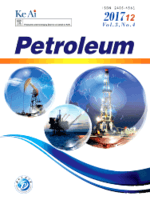
Petroleum
Advancing sustainable energy solutions through cutting-edge research.Petroleum, an esteemed open-access journal published by KEAI PUBLISHING LTD, serves as a premier platform for disseminating high-quality research in the fields of energy engineering, fuel technology, geology, and related earth sciences. Established in 2015, the journal exemplifies innovation and scholarly rigor with a commendable ranking in the second quartile across multiple categories, including Energy Engineering and Geopolitics. With a focus on advancing knowledge and practices in the petroleum sector, it encourages submissions that encompass a broad spectrum of topics from exploration and extraction techniques to environmental impacts and sustainability measures. Based in Beijing, China, this journal's impact is further enhanced by its significant presence in the Scopus database, achieving impressive percentiles, such as the 95th for Geology and 93rd for Geochemistry and Petrology. The open-access model fosters unrestricted global collaboration and accessibility, making the latest research available to a diverse audience of researchers, professionals, and students eager to innovate and lead in the burgeoning energy landscape.

Frontiers in Climate
Fostering collaboration for innovative climate solutions.Frontiers in Climate is a pioneering open-access journal published by FRONTIERS MEDIA SA, dedicated to advancing the understanding of climate science and its multifaceted impacts on the environment and society. Since its inception in 2019, the journal has established itself as a crucial platform for researchers and professionals, contributing significantly to fields such as atmospheric science, environmental policy, and pollution management, achieving commendable rankings within various categories. With an impressive quartile categorization of Q1 in Environmental Science (miscellaneous), Management, Monitoring, Policy and Law, and Pollution, as well as Q2 in Atmospheric Science and Global and Planetary Change for the year 2023, it reflects high-quality scholarly output and relevance in the academic community. The journal's commitment to open access ensures that vital research is accessible to all, fostering collaboration and innovation in tackling the pressing issues related to climate change. Whether you are a researcher, policymaker, or student, Frontiers in Climate is an essential resource for advancing knowledge and implementing solutions for a sustainable future.

Carbon Letters
Pioneering Insights in Materials Chemistry.Carbon Letters, published by SPRINGER JAPAN KK, is a premier academic journal based in Singapore that focuses on groundbreaking research in the fields of Ceramics and Composites, Energy Engineering, Inorganic Chemistry, Materials Chemistry, and Organic Chemistry. With an exceptional reputation reflected in its 2023 category quartiles, which include Q1 rankings across multiple disciplines, this journal serves as a vital resource for researchers and professionals seeking to stay at the forefront of carbon-related studies and applications. Although it is not an open access publication, Carbon Letters facilitates the dissemination of high-quality research addressing contemporary challenges in renewable energy, sustainability, and environmental engineering, supporting the academic community's efforts in advancing science and technology. The journal has a robust converged period from 2014 to 2024, signaling its ongoing commitment to excellence in academia.